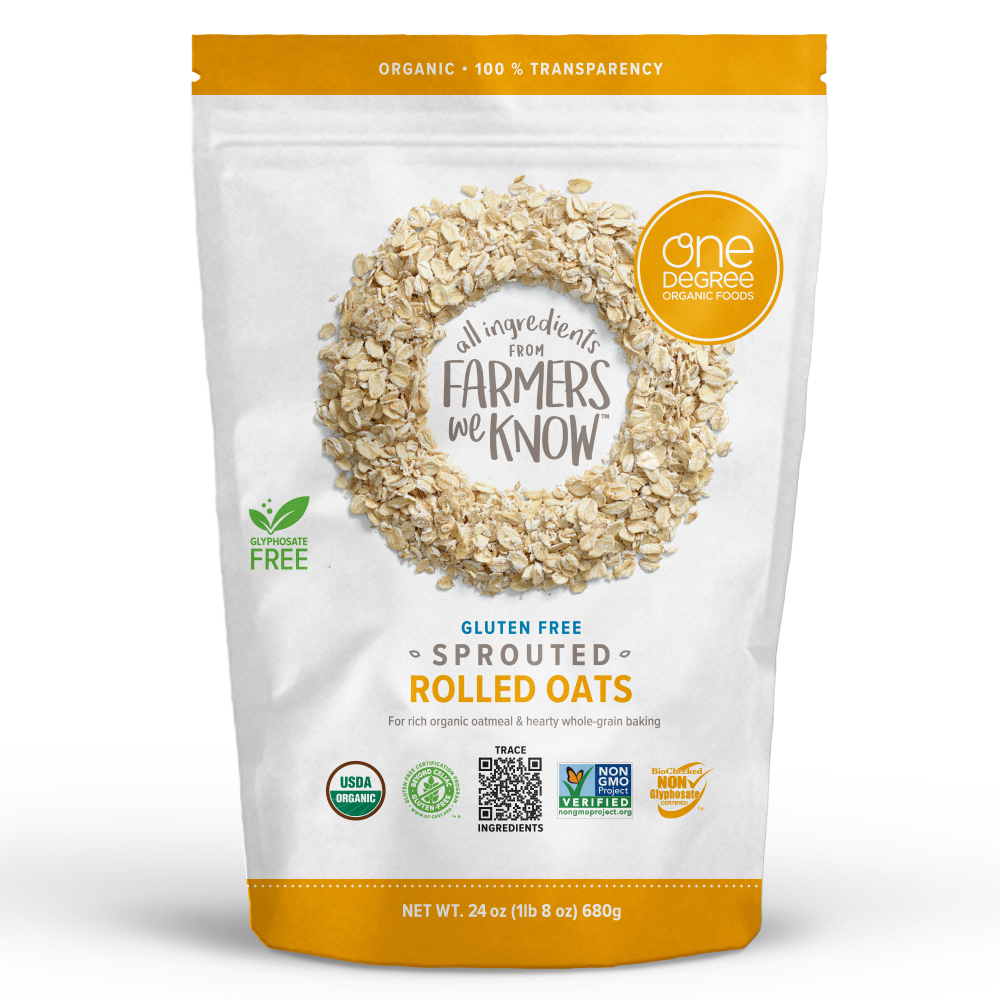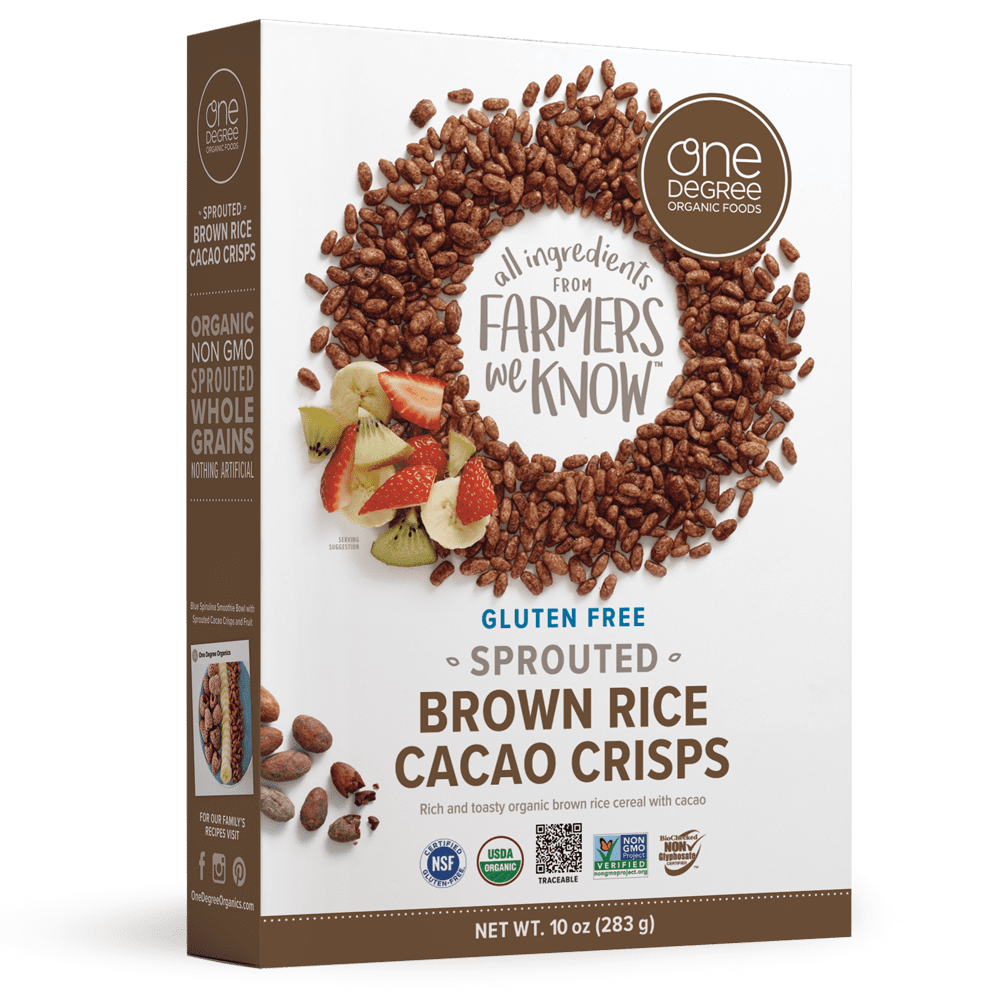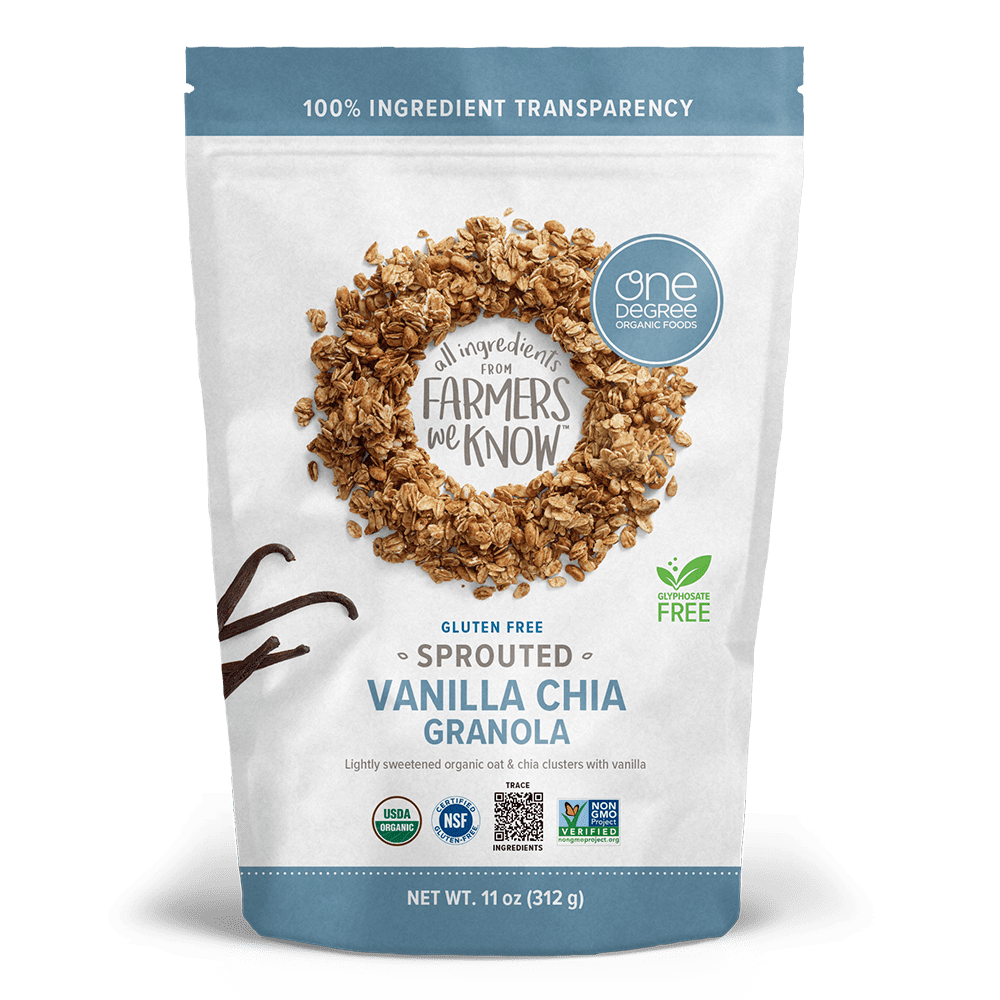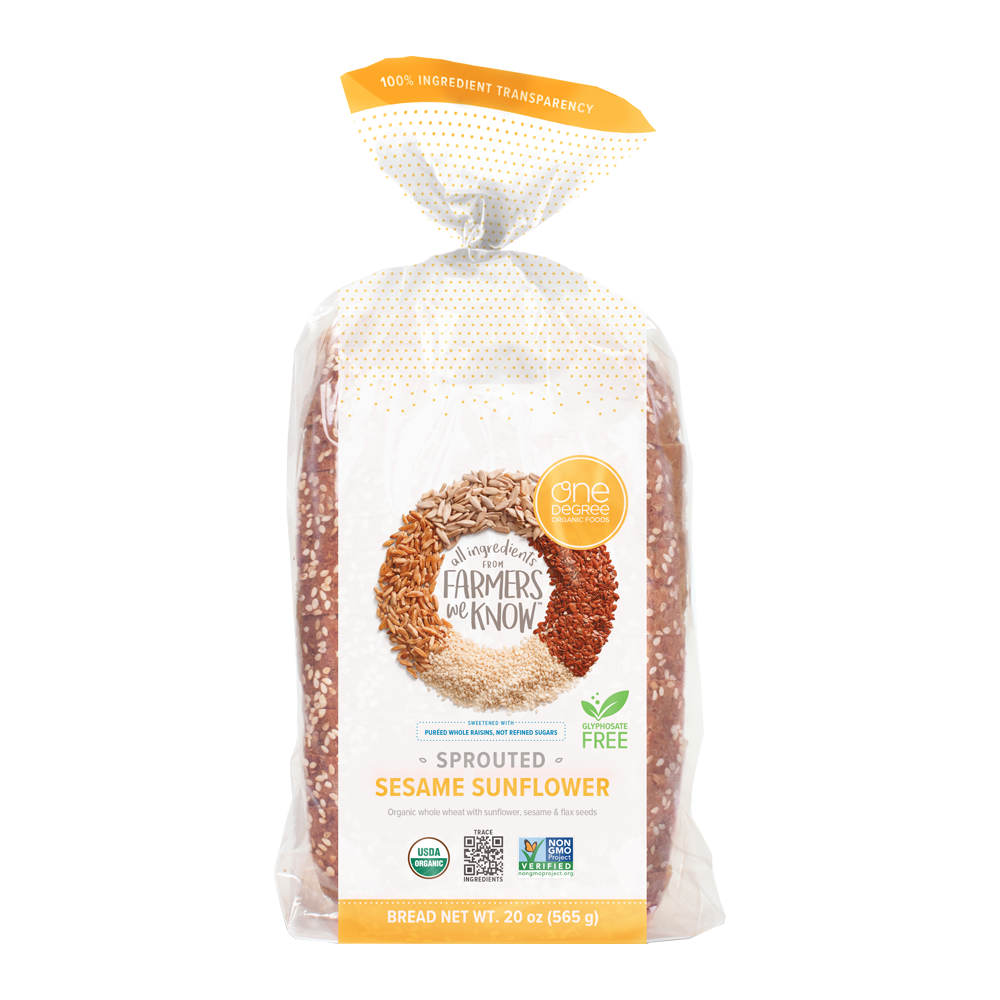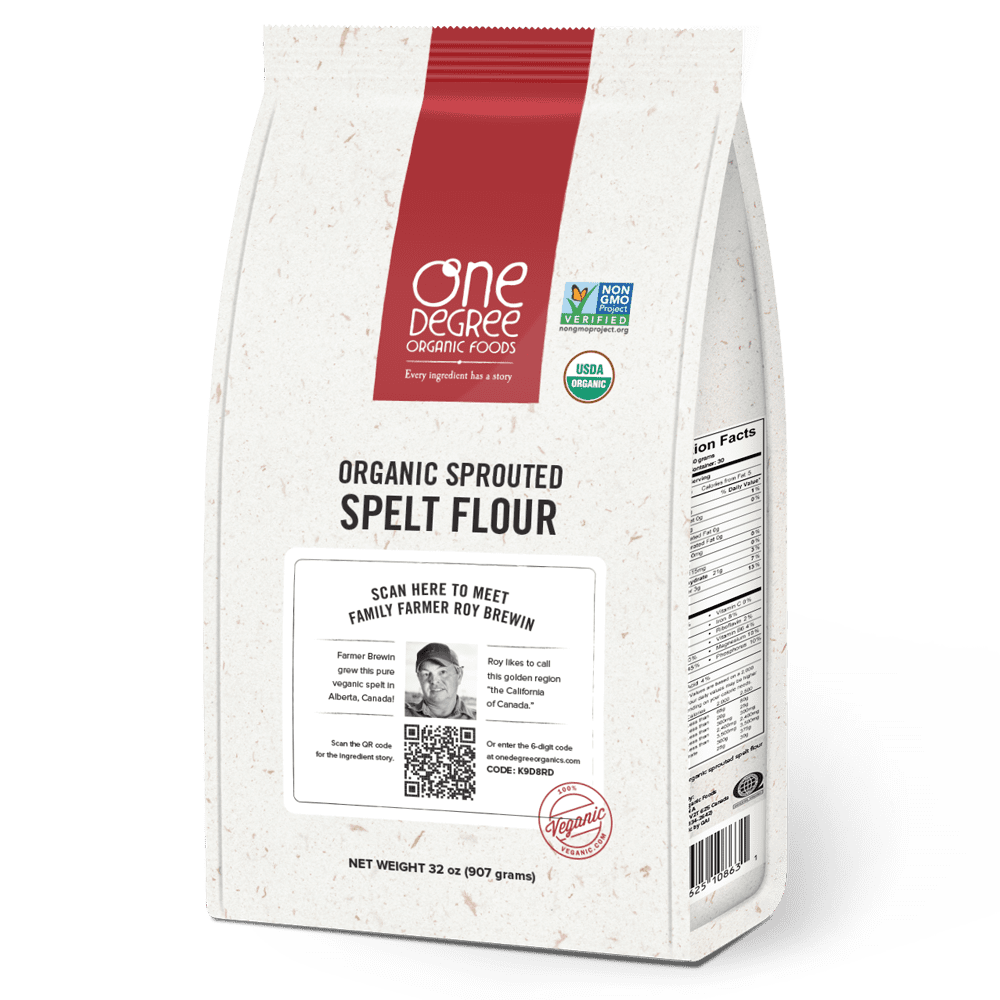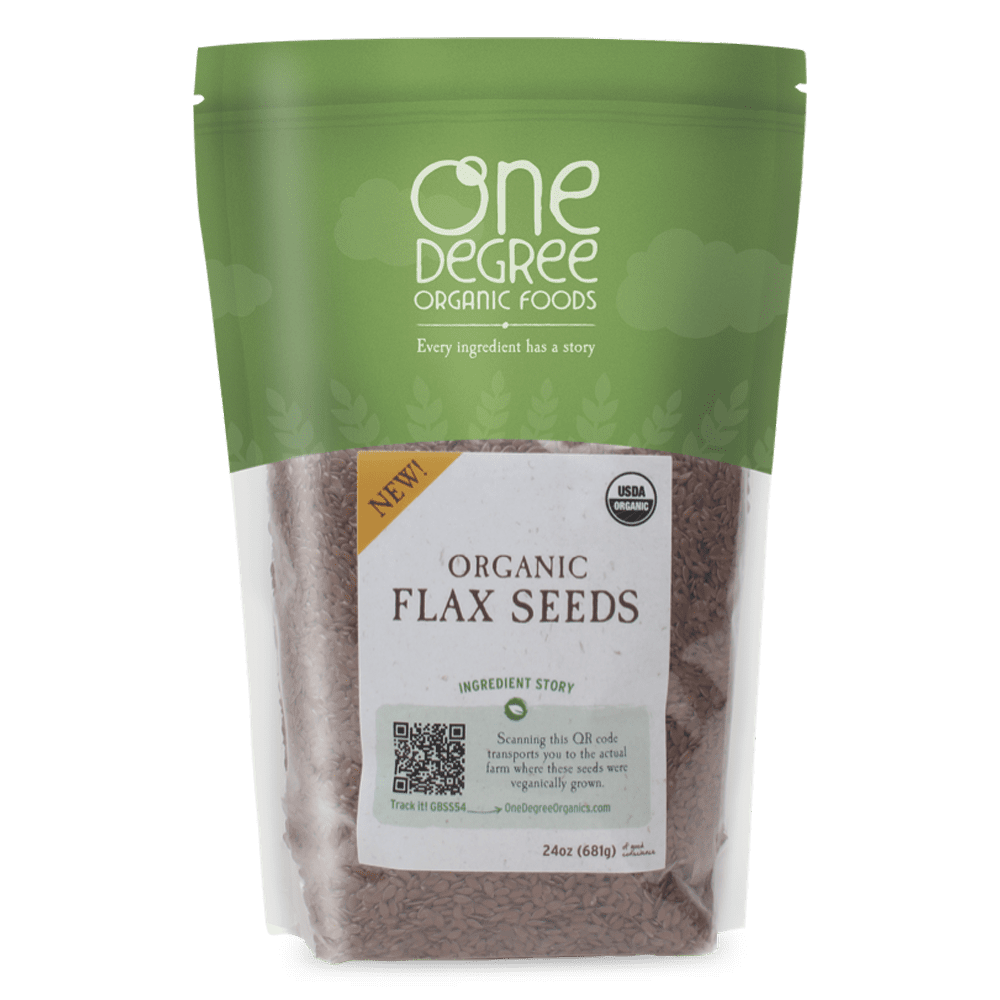Pumpkin Seeds
Schalk Muehle
In southeastern state of Styria, Austria, breathtaking mountain vistas, healing spas, and stately castles are commonplace. So too are beautiful organic pumpkins. These unassuming dots of dark yellow and orange goodness fade off into the fields as passersby make their way here or there on bordering roads. Little do they know, they’re breezing past a wonderful secret cocooned within these seasonal squashes: dark green and deliciously nutty Styrian heirloom pumpkin seeds.
Grown without shells, these earthy seeds originate in this Austrian state; hence the name Styrian pumpkin seeds. These stand out from other seeds not only because they lack a shell, but because their rich color points to a high concentration of chlorophyll. We source these incredible Styrian pumpkin seeds for our One Degree Organic Foods because they’re packed with valuable vitamins and minerals, are high in antioxidants and fiber, and provide a wholesome source of plant-based protein and healthy fat.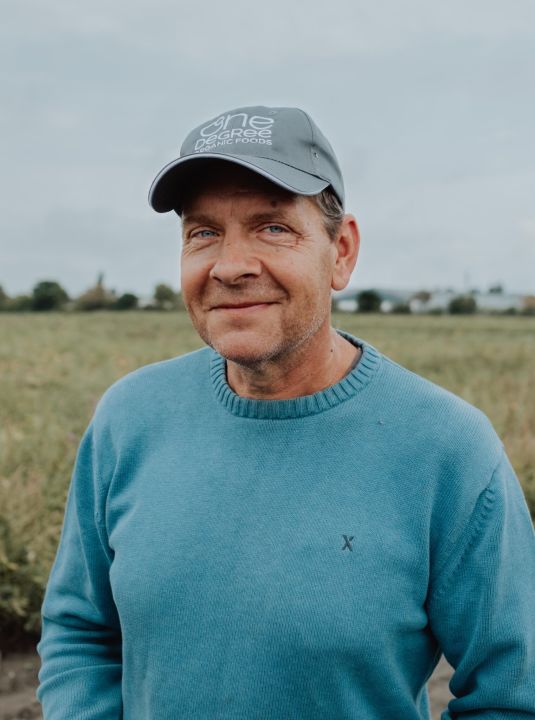
To understand more about these impressive pumpkin seeds, we went to Styria to meet our farmer partner Rainer Schalk of Schalk Muehle (who also grows our sunflower seeds) and learn more from the farmers he works with to grow these one-of-a-kind seeds.
“We were founded in 1859, so it’s a sixth generation company,” explains Rainer, adding that farming is cemented in Austria’s robust culture. Not only does his family’s namesake brand have a longstanding history, but so do the growers he works with. “I have been an organic farmer since 1995,” says farmer Manfred Radl. “I took over the farm from my father, and my grandfather. We have been working these fields over five generations.” The story is similar for farmer Rupert Groll. “My family has worked here for two or three hundred years because the father gives the farm to the son or the daughter, and so on. And one day I will give my farm to my daughter.”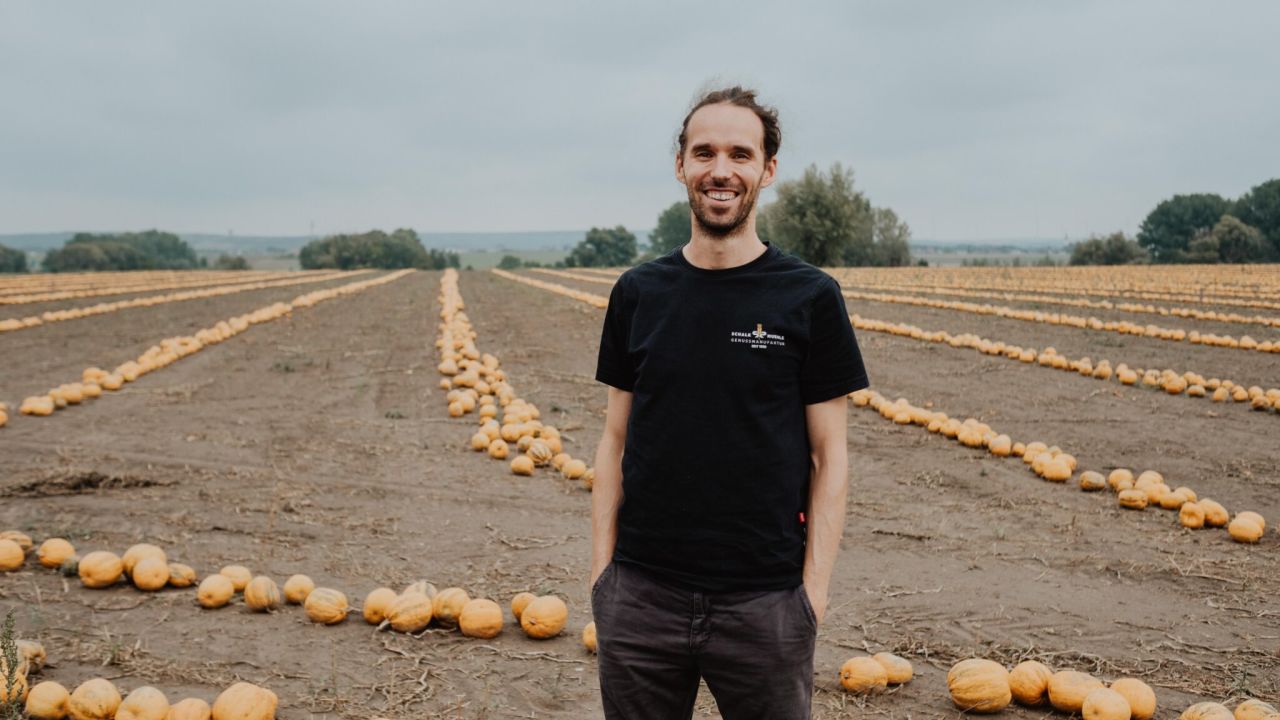
These close-knit relationships and family ties feed into Schalk Muehle’s philosophy on organic food and respect for nature. “Crop rotation is very important for nature and the soil,” says Rainer. “If you plant every year the same crop, you’ll have bad impact on the soil, nature, the animals … and that’s not the way nature works. Organic farming is much closer to nature than conventional farming, and that’s what we’re looking for.”
Manfred echoes this philosophy. “I work with my son on 200 hectares,” he says. “We grow alfalfa, pumpkin seeds, sunflowers, strawberries, and sugar beets. The pumpkin seeds take the nutrients from the soil, so it’s very important to have soil that is pesticide-free.” Once a year, organic inspectors come at random to inspect his farm to make sure that their foods meet the Certified Organic standard. And, like all One Degree Organic Foods farmer partners, Schalk Muehle, and by extension Rupert and Manfred, omit the use of any animal fertilizers for the health of the planet, people, and for the benefit of the growing cycle.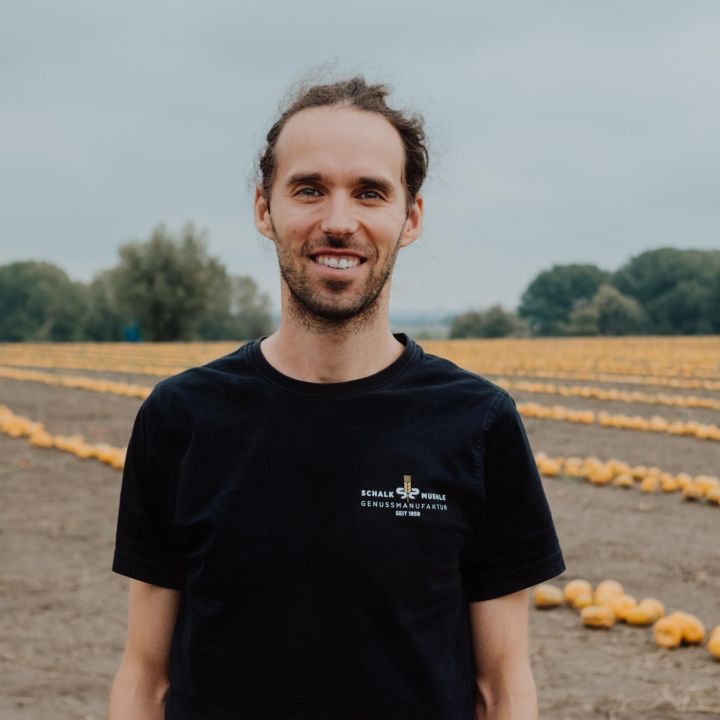
These Styrian seeds have to be planted at the exact right time of year—too early and Manfred and Rupert might be dealing with frost problems; too late and they have problems with water because there isn’t enough time for them to grow. “After planting the seeds, we work with a tractor and by hand. After three or four months—end of September into the end of October—we can harvest the pumpkins when they are a dark yellow. We put them into rows with a tractor, and they are picked up by a harvesting machine. This removes the seeds and leaves the flesh on the field as a natural fertilizer.
“All the sunshine from the whole year is saved in those small green seeds,” says Rainer proudly. “The pumpkin seed is very very high in nurtrition. That’s the reason we call it an Austrian superfood.”
We are proud to share in Schalk Muehle’s love of organic food and food transparency. These delicious Styrian pumpkin seeds are a wonderful addition to our One Degree Organics granolas, and we hope you enjoy their savory, nutty flavor and beautiful color as much as we do.
